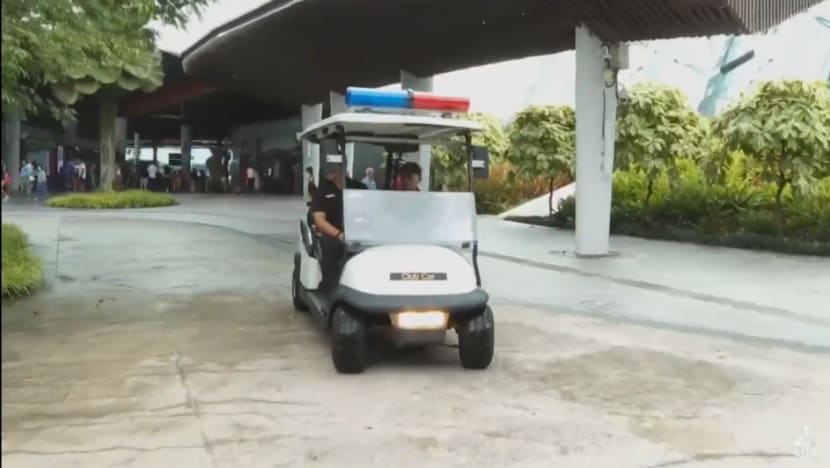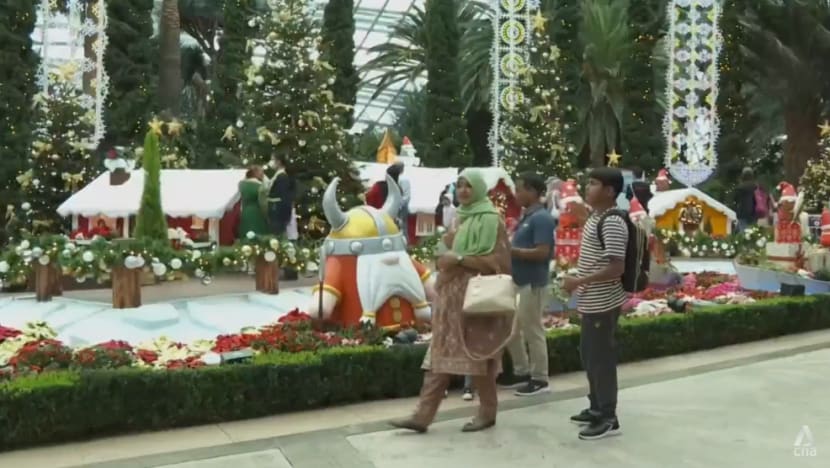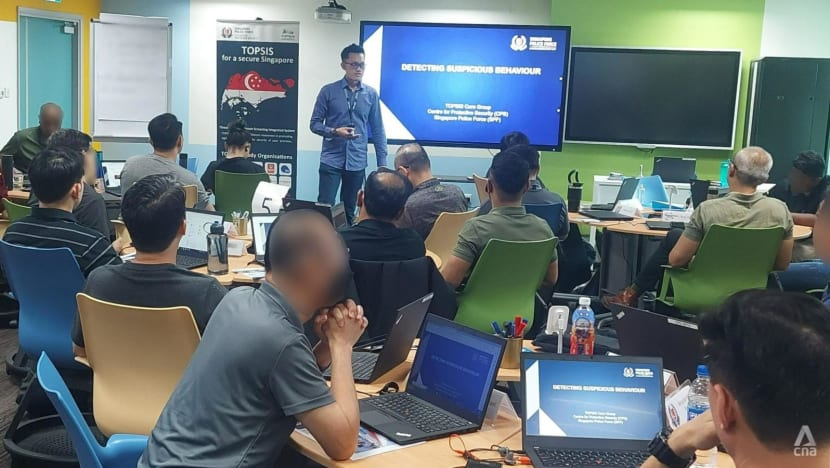‘It takes a whole kampung’: Tourist hotspots adopt police framework on security with holiday season in full swing
The TOPSIS programme trains security personnel and ground staff at some crowded establishments to be the first line of defence against potential threats.


This audio is generated by an AI tool.
SINGAPORE: From petty criminals to hardened terrorists – security personnel and ground staff at tourist hotspots have been trained to look for tell-tale signs that give them away.
It is part of efforts by the Singapore Police Force (SPF) to promote community vigilance and strengthen and enhance homefront security.
The Threat-Oriented Person Screening Integrated System (TOPSIS) programme trains some workers and partners to detect security anomalies and report them to their security department for enhanced checks. Security personnel will then establish if there is indeed a threat that requires police involvement.
The police also recommends that technology such as closed-circuit television (CCTV) cameras be used in tandem to help in crowd situations.
GARDENS BY THE BAY
Gardens by the Bay is among 19 organisations that went through the police training programme and successfully implemented the framework.
The attraction is seeing 50 per cent more visitors than usual during this holiday period.
Both locals and visitors have been flocking to its Supertree Grove and Flower Dome to check out Christmas displays and bask in the festive atmosphere at its carnival and food booths.
The attraction’s security team has stepped up efforts to keep visitors safe, including doubling the number of staff.
Regular patrols have been intensified to scan for any suspicious persons or objects.

The Garden’s assistant director of security Jacky Lim said he is putting his TOPSIS training, which includes analysing an individual's behaviour, into good use.
“We can feel when (a person’s) intention is not very right. We will observe them and decide whether it is necessary to do some security questioning. Then subsequently … we (decide if we need to) get the police to come and assist us,” he said.
The initiative is not limited to security personnel. Other employees, including those involved in frontline operations such as ticketing and customer experience, corporate staff, long-term contractors and vendors are also on constant look out for anything out of the ordinary.
“It's good to have all eyes and ears on the ground,” said Mr Addison Goh, the Garden’s senior director of attractions operations.
“(Our staff) are equipped with key skills to detect tell-tale signs, to be aware of different behavioural indicators. They are also trained in situational awareness to detect suspicious items or people and follow the reporting process.”

OTHER ATTRACTIONS ADOPT FRAMEWORK
Sentosa was the first to implement the framework about seven years ago.
In the lead up to every year-end festive period, management intensifies the frequency of refresher training for frontline staff from hotels and beachfront establishments.
The resort island’s rangers have also increased on-ground presence and enhanced monitoring through security technology.
Mr Chew Yun Meng, deputy divisional director of island operations, said it takes a village to stay vigilant and to keep everyone safe.
“It takes a whole kampung to jaga (take care of) the kampung, and to keep the kampung safe,” he said.
“In Sentosa, we believe it takes the whole community here and every different individual who works on the island to give peace of mind to all visitors. Over the years we have inculcated this very strong culture of ‘see, say, solve.’”

At Downtown East, which is seeing almost full occupancy rate for its D’Resort accommodation and higher-than-usual foot traffic at its water theme park and shopping premises, management has extended the need for security awareness to even tenants.
“No success can be achieved without the communities’ involvement. With an effective TOPSIS framework in place, potential suspicious activities can be addressed swiftly,” said Ms Felice Low, director of infrastructure at NTUC Club, which manages the hub.
EVOLVING PROGRAMME
The programme was first conceptualised in 2007 and is being continually reviewed and enhanced to make sure it stays up to date.
It has been progressively rolled out to areas with high traffic and limited security resources, such as tourism, public transport, and religious and education sectors.
“Our TOPSIS partners have trained and engaged their communities to play a part in recognising, reporting and resolving tell-tale indicators to complement the efforts of the police to keep their premises safe and secure,” said the SPF’s assistant director of the Security Programmes Centre for Protective Security Bridget Goh.
Mr Wilbur Sim, director of the SGSecure Programme Office, said: “Every little action counts. Our strongest defence against terrorism is our collective vigilance. We should work hand in hand together with our security agencies, and play our part in keeping Singapore as well as our family and friends safe and secure.”


















